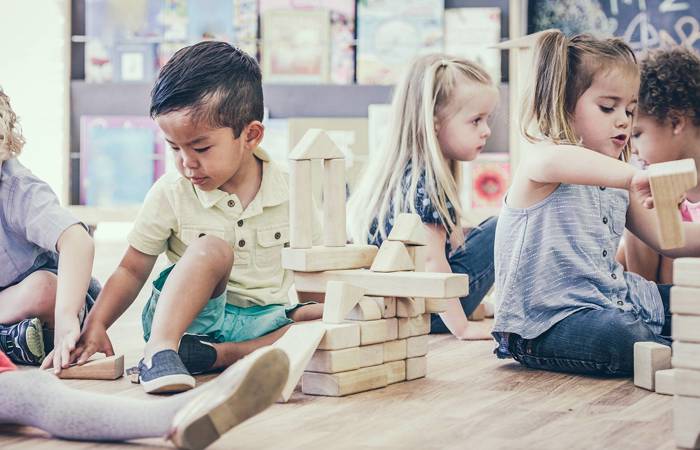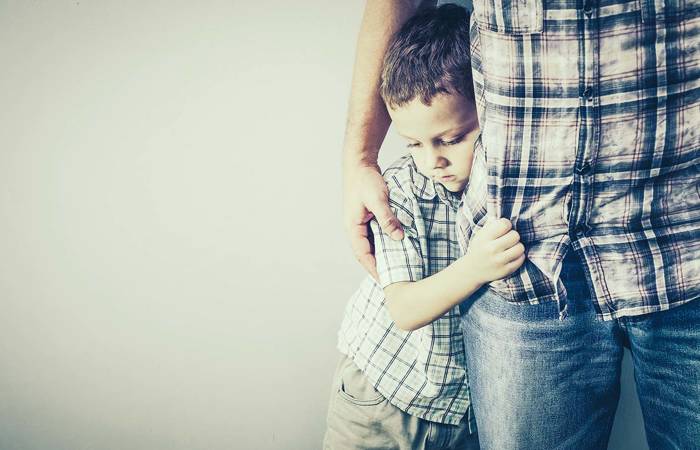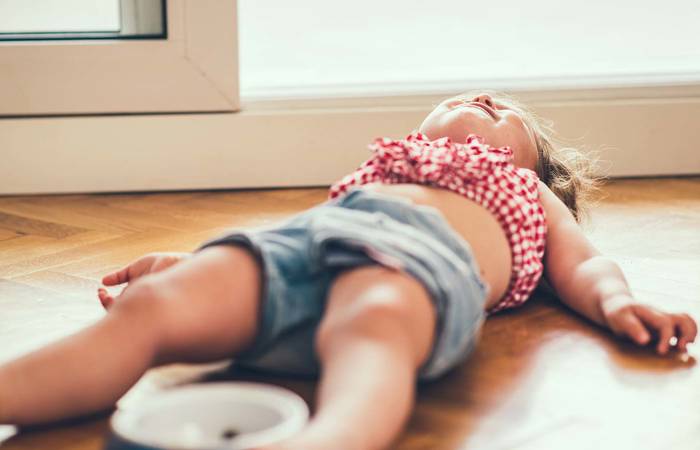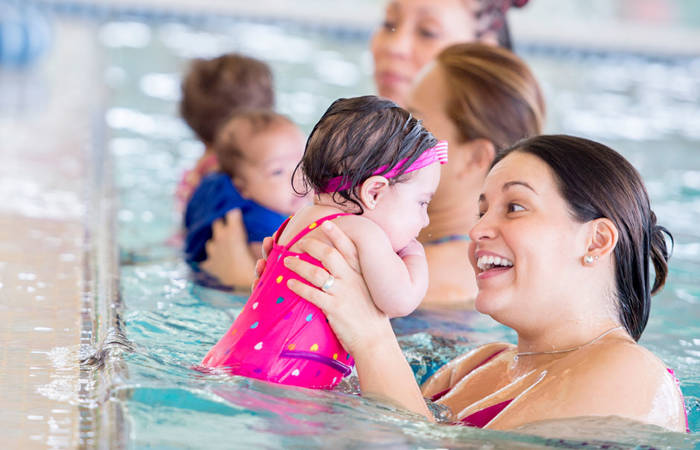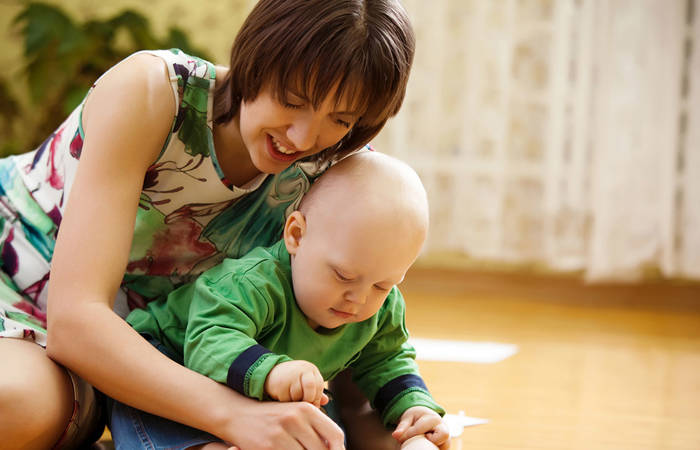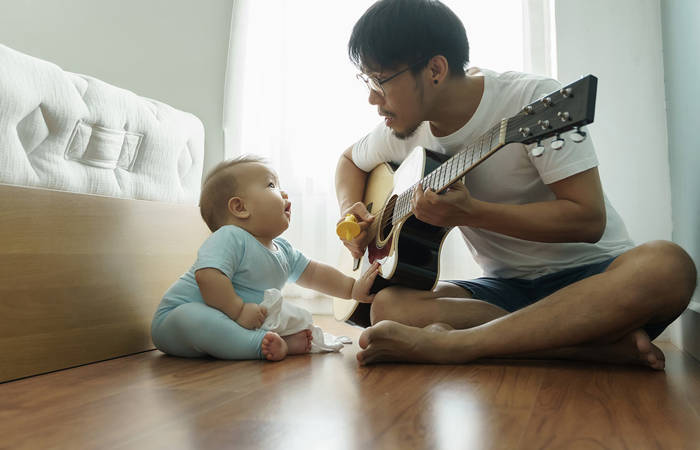Like what you see?
Sign up to receive more free parenting advice.
Thank you for subscribing to our newsletter!
Lifestyle
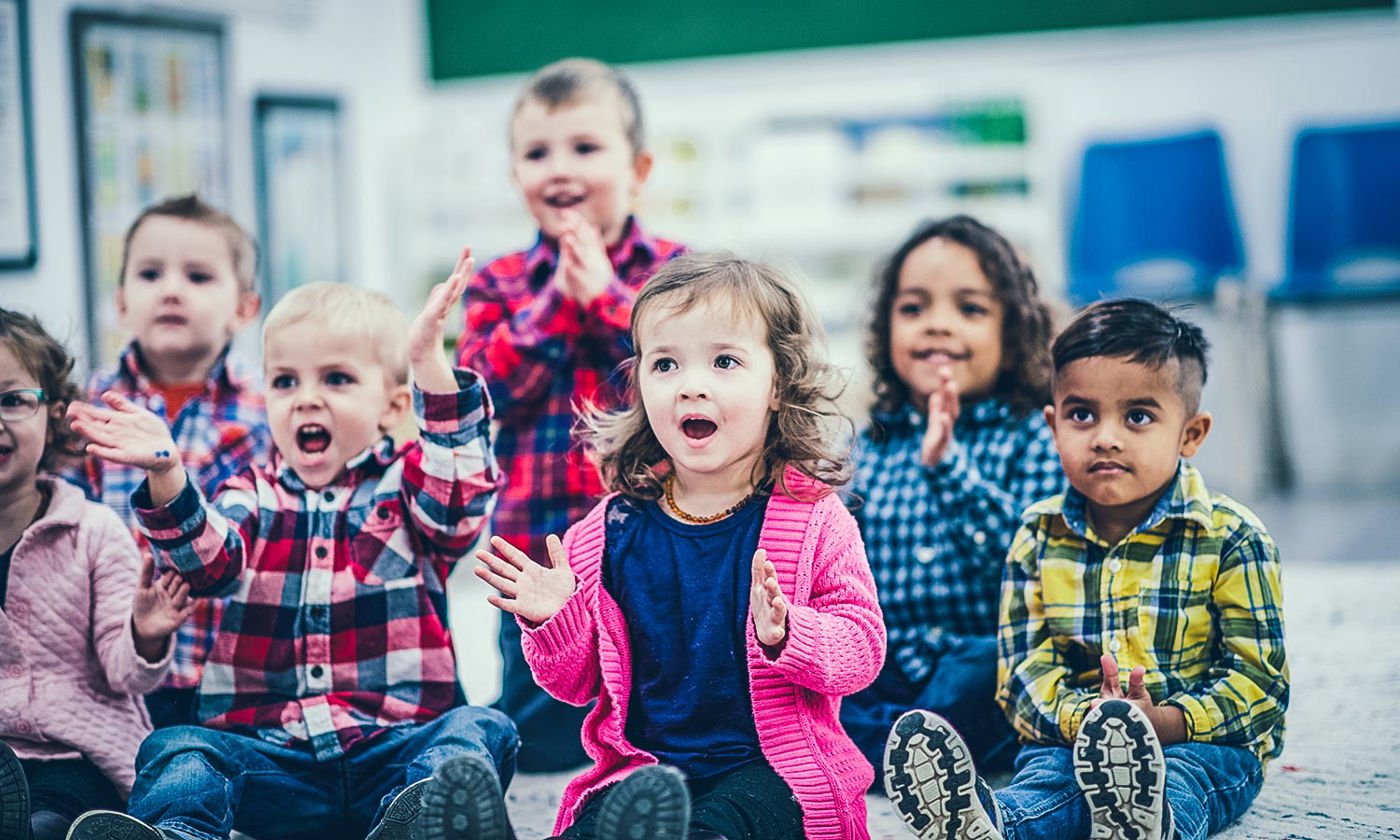
Credit: iStock.com/FatCamera
The period from birth to five years is a time of rapid growth and learning and some of the most valuable opportunities for learning occur when children need to manage change.
During the early years, children and families need to navigate multiple transitions.
Key milestones include starting at an early childhood centre, moving rooms within the centre, and of course, the one that most people think about – transition into school. These changes give children the opportunity to learn how to manage daily transitions, from home to the centre or school and back again.
We all know that change can be difficult. This is true for adults and children. Change is an inevitable part of life. Having a positive outlook and being able to approach and manage change in positive and constructive ways is critical to success in life. Early transitions provide one of the best opportunities to develop the skills and dispositions we need to live and do well in a changing world.
Children’s every day relationships and experiences provide opportunity for ongoing learning on change. These are not only important to the child at the time, but set the foundation for their future health, learning and wellbeing.
Building resilience through positive transitions
Everybody handles change differently. Change can be welcome and exciting, cause stress and anxiety and often a little of both. Of course, this depends on the nature of the change and how we are feeling at that time.
Helping your child to experience positive transitions builds their resilience. What does this mean? The concept of resilience comes from physics, describing the ability of an object to stretch and then spring back to its original form. In child development, a resilient child is one that is better equipped to manage stress and cope with new and challenging situations.
Transitions provide opportunities for children to experience important learning. This includes learning that we can exercise control during change. It also includes important life skills such as being able to communicate worries and concerns, identify and self-regulate feelings, and importantly, how to problem-solve. Each time you support your child to experience a positive transition, you are helping to build their resilience.
Children will experience transitions differently. Many parents report changes in their child’s behaviour during transitions, including the appearance of some out of character and challenging behaviours.Dr Susan Irvine
Stay up to date with the latest news and articles from First Five Years
Thank you for subscribing to our newsletter!
Think about transitions from your child’s perspective
Children will experience transitions differently. Many parents report changes in their child’s behaviour during transitions, including the appearance of some out of character and challenging behaviours. It is important to remember that all behaviours have a motivation. The following behaviours are not unusual during transitions:
- Your child may have settled well at the beginning, but now four weeks in no longer wants to attend the centre. Mornings are slow and difficult. Why? Sometimes, as the novelty of a new environment wears off, children begin to realise this is a permanent change. This can cause mixed emotions.
- A child who doesn’t want to attend the centre in the morning, seems angry when you arrive in the afternoon and doesn’t want to leave to go home. Why? Often when a child is settled and comfortable in an experience, the idea of change of any sort is frustrating or unsettling.
American psychologist Kent Hoffman encourages parents and educators to think about what young children are trying to communicate through behaviours such as these. The idea is to understand and respond to the problem rather than react to the behaviour. Perhaps easier said than done. But it can be helpful to try to put yourself in your child’s shoes at these times. Finding out what is motivating the behaviour is the first step towards problem-solving with your child and educators at the service.
Transition by definition means that your child is moving from a familiar environment to a new one, with new people and expectations. Getting to know the people and environment will help you to support your child to make the transition. So what can parents do and what can they expect from their early learning centre?
How can parents build resilience and support positive transitions?
It is important to stay present, positive and calm during the transition. Your child will be looking to you for guidance. If they can see you are feeling relaxed and happy this can help them to feel the same. In turn, consider how your child might feel if they see you are stressed or upset about the transition.
Remember that the transition is more than the first day or week. Experts suggest that we look at transitions as a process for learning, that should begin well before the first day in the new environment. Thoughtful and intentional planning is the key to success.
You know your child best so think about what information you will share with the centre to support a successful transition. Talk with educators about what your child likes to do, things that might worry them, and what settles them if they are upset at home.
During transitions your child needs to remember a lot of information. They are entering a new space, which often means adapting to new adults and children, new routines and expectations. Visit the centre, ideally with your child, and find out about the general pattern of the day. Talk about this at home to build familiarity but be careful not to overdo it.
Clear and predictable routines help children know what to expect. Work with your child and their educator to develop a drop off routine, then stick to it. For example:
- helping your child to complete their morning tasks (e.g. washing their hands when entering the centre, putting food into the fridge, putting on their hat and sunscreen to play outside)
- dropping your child off to their key educator (someone they feel particularly safe and secure with)
- sharing a story, having ten pushes on the swing, doing one puzzle or any other preferred but time-limited task.
Take your lead from your child as much as possible. Actively involving your child in establishing and then managing their morning routine helps them to feel capable and builds independence. Whatever you choose, it is important to say goodbye every morning. This will help your child to process the fact that you are leaving, but that you will come back.
It is also helpful to share key information from home with the centre (e.g. if your child got to bed late, woke up earlier than usual or has been unwell, or if you did something exciting over the weekend). For some children it may help to have a pick-up routine as well. This might mean you pick them up at the same time each day, or they know they can ask for a few minutes to finish what they are doing at the centre before heading home.
What can parents expect from their early childhood centre?
While you are an expert on your child, educators at your centre have specialist knowledge of child development, learning and transitions. They assist children to transition from home on a daily basis and work with children and families to support transition to school at the end of each year.
Working together is integral to a positive transition. So, what can parents expect from their early childhood centre?
To begin, there should be recognition and respect for your child and family’s uniqueness. There is no one right way to transition. Like most aspects of teaching in early education, it’s about individualised practice. Educators will be interested in tapping into your knowledge and prepared to work flexibly to respond to your child and family needs.
The centre will be committed to open information sharing. Educators will be available to talk with you and your child. They will actively seek your knowledge of your child and will share their ideas and expertise. The outcome will be a shared transition plan that draws on the best information that everyone has to offer. Educators will continue to check in with your child and you and adjust the plan as needed.
Finally, you should feel a sense of genuine care and support. Educators understand the important learning that occurs during transitions and recognise that children and families need support to ensure a smooth and successful transition.
Whether you plan for transitions or not, children will learn about change. They can learn that change can be positive and that they have power in how they approach and manage it.
Alternatively, they can learn that change is something to be feared or avoided. Transitions are a part of life. Supporting your child to experience positive transitions helps to build their resilience and to develop constructive strategies to live and do well in a changing world.

Dr Susan Irvine
QUT Associate Professor in the School of Early Childhood and Inclusive Education
See more
